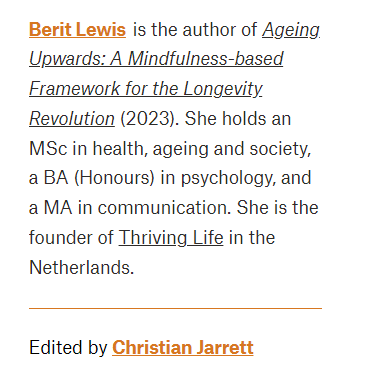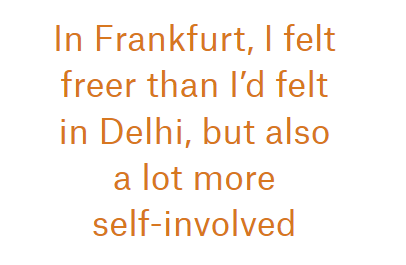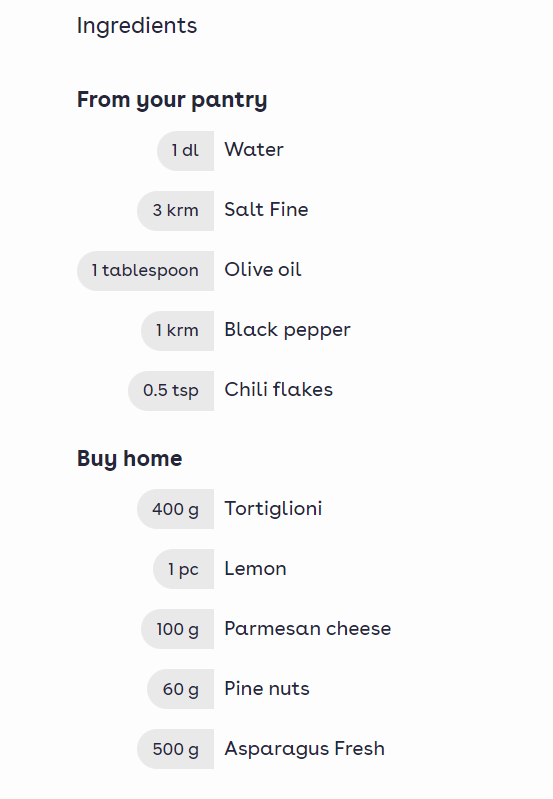Welcome to DU!
The truly grassroots left-of-center political community where regular people, not algorithms, drive the discussions and set the standards.
Join the community:
Create a free account
Support DU (and get rid of ads!):
Become a Star Member
Latest Breaking News
General Discussion
The DU Lounge
All Forums
Issue Forums
Culture Forums
Alliance Forums
Region Forums
Support Forums
Help & Search
Celerity
Celerity's Journal
Celerity's Journal
April 10, 2024

https://www.semafor.com/article/04/09/2024/how-a-ceasefire-backing-progressive-scared-pro-israel-groups-out-of-her-race
David Weigel
Apr 10, 2024
PITTSBURGH – To win a safe Democratic seat here in 2022, Rep. Summer Lee had to overcome nearly $4 million in ad spending by AIPAC’s super PAC. Democratic Majority for Israel spent nearly $500,000 more, helping her less-progressive primary opponent come within 978 votes of beating her. “You have to brace yourself,” Lee said in an interview, reflecting on that race. “You recognize that one interest group is able to completely change the course of a campaign.” And six months ago, when pro-Israel groups said they’d work to beat Democrats who wanted an immediate ceasefire in Gaza, Lee was near the top of their list, telling The New York Times that Israel’s response “look increasingly like a genocide of innocent Gazans.”
But AIPAC and DMFI haven’t spent anything in Pennsylvania’s 12th Congressional District this year. What looked like risky politics in October, when Democrats condemned the tone of some ceasefire protests, is becoming a mainstream position with primary voters. “Instead of shaming the uncommitted movement and calling them extremists, we need to recognize that the Democratic Party can’t win without this coalition,” Lee said.
The Lee campaign’s polling has mirrored national public polling, with most self-identified Democrats turning on the war since last year. Last week, when Lee signed a letter urging the Biden administration to stop weapon transfers after an IDF strike that killed aid workers, she was joined by Nancy Pelosi. “Our money is being used to finance a war that is massacring people by the thousands,” said Kipp Dawson, a Jewish civil rights activist in Pittsburgh who supports Lee. “Summer believes that Israel is being empowered by what our government does. I agree with her completely. That’s one reason why she’s come under attack. She and people in Congress who agree with her are opposed by big money that supports the Israeli war right now.”
Lee has pulled some skeptics to her side with constituent work, rallied with the Biden campaign, and scooped up endorsements. That answered one of the most effective attacks against her in 2022 — that she’d undermine Biden and hurt her party. (“Summer Lee attacked Biden’s character,” warned one of UDP’s primary ads.) After looking closely at the race, pro-Israel groups decided that the primary wasn’t winnable. Democrats such as New York Rep. Jamaal Bowman and Missouri Rep. Cori Bush, weakened by scandals totally unrelated to the Gaza issue, looked vulnerable. Lee did not.
snip
How a ceasefire-backing progressive scared pro-Israel groups out of her race

https://www.semafor.com/article/04/09/2024/how-a-ceasefire-backing-progressive-scared-pro-israel-groups-out-of-her-race
David Weigel
Apr 10, 2024
PITTSBURGH – To win a safe Democratic seat here in 2022, Rep. Summer Lee had to overcome nearly $4 million in ad spending by AIPAC’s super PAC. Democratic Majority for Israel spent nearly $500,000 more, helping her less-progressive primary opponent come within 978 votes of beating her. “You have to brace yourself,” Lee said in an interview, reflecting on that race. “You recognize that one interest group is able to completely change the course of a campaign.” And six months ago, when pro-Israel groups said they’d work to beat Democrats who wanted an immediate ceasefire in Gaza, Lee was near the top of their list, telling The New York Times that Israel’s response “look increasingly like a genocide of innocent Gazans.”
But AIPAC and DMFI haven’t spent anything in Pennsylvania’s 12th Congressional District this year. What looked like risky politics in October, when Democrats condemned the tone of some ceasefire protests, is becoming a mainstream position with primary voters. “Instead of shaming the uncommitted movement and calling them extremists, we need to recognize that the Democratic Party can’t win without this coalition,” Lee said.
The Lee campaign’s polling has mirrored national public polling, with most self-identified Democrats turning on the war since last year. Last week, when Lee signed a letter urging the Biden administration to stop weapon transfers after an IDF strike that killed aid workers, she was joined by Nancy Pelosi. “Our money is being used to finance a war that is massacring people by the thousands,” said Kipp Dawson, a Jewish civil rights activist in Pittsburgh who supports Lee. “Summer believes that Israel is being empowered by what our government does. I agree with her completely. That’s one reason why she’s come under attack. She and people in Congress who agree with her are opposed by big money that supports the Israeli war right now.”
Lee has pulled some skeptics to her side with constituent work, rallied with the Biden campaign, and scooped up endorsements. That answered one of the most effective attacks against her in 2022 — that she’d undermine Biden and hurt her party. (“Summer Lee attacked Biden’s character,” warned one of UDP’s primary ads.) After looking closely at the race, pro-Israel groups decided that the primary wasn’t winnable. Democrats such as New York Rep. Jamaal Bowman and Missouri Rep. Cori Bush, weakened by scandals totally unrelated to the Gaza issue, looked vulnerable. Lee did not.
snip
April 10, 2024

Whether you are 20 or 90, each moment of life presents an opportunity to focus on what really matters to you
https://psyche.co/ideas/rather-than-fearing-getting-old-heres-how-to-embrace-it


Do you dread getting older? You are not alone. There’s a widespread assumption that old age is painful, lonely and unattractive. While most of us in the developed world appreciate the medical developments that mean we can expect to live around six years longer than our grandparents, we don’t actually want to be old. Marketing and media messages tell us that life is all downhill from the age of 50, and we are offered copious amounts of ‘anti-ageing’ products or lifestyle changes that can help us avoid going down that hill.
With an increasingly older population, I believe it is about time that our collective mindset on ageing catches up with reality. Luckily, the negative picture you’ve probably formed about ageing is simply not true. For instance, research into the so-called happiness curve indicates that our level of happiness increases from around midlife and up until the age of 70. Yes, it might take you a little longer to learn new things late in life, and you might perform some activities more slowly than you used to, but there are also many ways in which older age is a strength. With increasing age, you can expect to accumulate better knowledge of the world and become better at retrieving and applying it, and for your emotional intelligence to increase.
Of course, as in all stages of life, old age brings distinct challenges. But instead of telling older people to age ‘successfully’ (which basically means ‘Don’t age!’), I think we should be more supportive of these challenges. After all, we do not tell teenagers to avoid the challenges of their age. Rather, we try to facilitate ways for them to face their challenges and come out wiser and more resilient. We should support people transitioning through life after 50 in the same way. In that spirit, here are some ways to embrace increasing age, so that, instead of running away from it, you can let it be a catalyst for growth.
Using mindfulness to grow older rather than get older
To grow with age, I suggest practising various forms of mindfulness. Just as exercise for the body helps to maintain and improve physical health, mindfulness is mental training that flexes the mind for optimal health and wellbeing. It involves a curious investigation of the present moment – your thoughts, emotions and physical sensations. The benefits include improved concentration, more awareness, an ability to stay focused on what is important, and the ability to meet challenges with kindness, humour, resilience and mental adaptability. Here are five mindfulness-based ways to grow with age rather than merely get older:
Choose what you pay attention to...........................
snip
Rather than fearing getting old, here's how to embrace it

Whether you are 20 or 90, each moment of life presents an opportunity to focus on what really matters to you
https://psyche.co/ideas/rather-than-fearing-getting-old-heres-how-to-embrace-it


Do you dread getting older? You are not alone. There’s a widespread assumption that old age is painful, lonely and unattractive. While most of us in the developed world appreciate the medical developments that mean we can expect to live around six years longer than our grandparents, we don’t actually want to be old. Marketing and media messages tell us that life is all downhill from the age of 50, and we are offered copious amounts of ‘anti-ageing’ products or lifestyle changes that can help us avoid going down that hill.
With an increasingly older population, I believe it is about time that our collective mindset on ageing catches up with reality. Luckily, the negative picture you’ve probably formed about ageing is simply not true. For instance, research into the so-called happiness curve indicates that our level of happiness increases from around midlife and up until the age of 70. Yes, it might take you a little longer to learn new things late in life, and you might perform some activities more slowly than you used to, but there are also many ways in which older age is a strength. With increasing age, you can expect to accumulate better knowledge of the world and become better at retrieving and applying it, and for your emotional intelligence to increase.
Of course, as in all stages of life, old age brings distinct challenges. But instead of telling older people to age ‘successfully’ (which basically means ‘Don’t age!’), I think we should be more supportive of these challenges. After all, we do not tell teenagers to avoid the challenges of their age. Rather, we try to facilitate ways for them to face their challenges and come out wiser and more resilient. We should support people transitioning through life after 50 in the same way. In that spirit, here are some ways to embrace increasing age, so that, instead of running away from it, you can let it be a catalyst for growth.
Using mindfulness to grow older rather than get older
To grow with age, I suggest practising various forms of mindfulness. Just as exercise for the body helps to maintain and improve physical health, mindfulness is mental training that flexes the mind for optimal health and wellbeing. It involves a curious investigation of the present moment – your thoughts, emotions and physical sensations. The benefits include improved concentration, more awareness, an ability to stay focused on what is important, and the ability to meet challenges with kindness, humour, resilience and mental adaptability. Here are five mindfulness-based ways to grow with age rather than merely get older:
Choose what you pay attention to...........................
snip
April 10, 2024

The modern obsession with textual purity stems from a misapplication of the philosophies of Wittgenstein and Derrida
https://psyche.co/ideas/censoring-offensive-language-threatens-our-freedom-to-think

Graffiti on the wall of the Odéon theatre in Paris, France; 23 May 1968. Photo by Guy Le Querrec/Magnum

‘The Karen buried her hatchet and submitted to the straight, fat hillbilly’s rule of thumb that gay ladies and gentlemen of colour should be blackballed from the powwow.’ This sentence offends almost everyone, according to the inclusive language guidelines being drawn up by universities, corporations and public bodies in the Western world. Their guidelines would have struck a red line through every word. What I should have written was: ‘The entitled white woman, in the interests of peace, accepted the default ruling of the obese, heterosexual person from the Ozarks that LGBTQ+ and BIPOC should not be invited to the get-together.’ Obviously, this is meant satirically. No writer worth his or her (or their) salt would write such a sentence (for aesthetic reasons, hopefully, and not because it offends).
But the fact that I feel the need to explain myself at all suggests the presence of an intimidating new force in society, a kind of thought virus that has infected most organisations and political parties, on the Right and Left, the key symptom of which is an obsession with textual ‘purity’, that is, language stripped of words and phrases they deem offensive. Yet, in trying to create a language that offends no one, they offend almost everyone. Why are we so afraid to use words freely, to offend with impunity? Whence arose this fetish for the ‘purity’ of the text? I trace the origins of this obsession with textual purity to the triumph of linguistic philosophy in the early 20th century. Let’s alight on a few key moments in that story to understand how we got here.
Richard Rorty, the editor of the seminal anthology The Linguistic Turn: Essays in Philosophical Method (1992), described ‘linguistic philosophy’ as ‘the view that philosophical problems are problems which may be solved (or dissolved) either by reforming language, or by understanding more about the language we presently use’. The elevation of language to such dizzy eminence divided philosophers: some thought it the greatest insight of all time; others were disgusted by what they interpreted as ‘a sign of the sickness of our souls, a revolt against reason itself’. The ‘linguistic turn’ on which the new thinking hinged was a radical reappraisal of the very purpose of philosophy. It swung away from the grand philosophical systems of the 18th and 19th centuries (as adumbrated by G W F Hegel, Immanuel Kant, Arthur Schopenhauer and lesser lights), and divided into two streams of thought – ‘analytic’ and ‘continental’ philosophy – which disputed much but shared this: an obsession with language and the limits of meaningful language.
The thinker who did most to propel philosophy into the orbit of linguistics was an Austrian logician and star pupil of Bertrand Russell’s called Ludwig Wittgenstein (1889-1951). He blamed what he saw as the confusion in philosophy on ‘the misunderstanding of the logic of our language’, as he recounted in the first of his two philosophical works, Tractatus Logico-Philosophicus (1921). The ‘whole meaning’ of this book, explained Wittgenstein, was to define the limits of meaningful language and, by extension, meaningful thought: ‘What can be said at all can be said clearly; and whereof one cannot speak thereof one must be silent. The book will, therefore, draw a limit to thinking, or rather – not to thinking, but to the expression of thoughts.’ In a letter to Russell, he was more specific: language, he wrote, was the same as thought: ‘The main point [of the Tractatus] is the theory of what can be expressed … by language – (and, which comes to the same, what can be thought).’
snip
Censoring offensive language threatens our freedom to think

The modern obsession with textual purity stems from a misapplication of the philosophies of Wittgenstein and Derrida
https://psyche.co/ideas/censoring-offensive-language-threatens-our-freedom-to-think

Graffiti on the wall of the Odéon theatre in Paris, France; 23 May 1968. Photo by Guy Le Querrec/Magnum

‘The Karen buried her hatchet and submitted to the straight, fat hillbilly’s rule of thumb that gay ladies and gentlemen of colour should be blackballed from the powwow.’ This sentence offends almost everyone, according to the inclusive language guidelines being drawn up by universities, corporations and public bodies in the Western world. Their guidelines would have struck a red line through every word. What I should have written was: ‘The entitled white woman, in the interests of peace, accepted the default ruling of the obese, heterosexual person from the Ozarks that LGBTQ+ and BIPOC should not be invited to the get-together.’ Obviously, this is meant satirically. No writer worth his or her (or their) salt would write such a sentence (for aesthetic reasons, hopefully, and not because it offends).
But the fact that I feel the need to explain myself at all suggests the presence of an intimidating new force in society, a kind of thought virus that has infected most organisations and political parties, on the Right and Left, the key symptom of which is an obsession with textual ‘purity’, that is, language stripped of words and phrases they deem offensive. Yet, in trying to create a language that offends no one, they offend almost everyone. Why are we so afraid to use words freely, to offend with impunity? Whence arose this fetish for the ‘purity’ of the text? I trace the origins of this obsession with textual purity to the triumph of linguistic philosophy in the early 20th century. Let’s alight on a few key moments in that story to understand how we got here.
Richard Rorty, the editor of the seminal anthology The Linguistic Turn: Essays in Philosophical Method (1992), described ‘linguistic philosophy’ as ‘the view that philosophical problems are problems which may be solved (or dissolved) either by reforming language, or by understanding more about the language we presently use’. The elevation of language to such dizzy eminence divided philosophers: some thought it the greatest insight of all time; others were disgusted by what they interpreted as ‘a sign of the sickness of our souls, a revolt against reason itself’. The ‘linguistic turn’ on which the new thinking hinged was a radical reappraisal of the very purpose of philosophy. It swung away from the grand philosophical systems of the 18th and 19th centuries (as adumbrated by G W F Hegel, Immanuel Kant, Arthur Schopenhauer and lesser lights), and divided into two streams of thought – ‘analytic’ and ‘continental’ philosophy – which disputed much but shared this: an obsession with language and the limits of meaningful language.
The thinker who did most to propel philosophy into the orbit of linguistics was an Austrian logician and star pupil of Bertrand Russell’s called Ludwig Wittgenstein (1889-1951). He blamed what he saw as the confusion in philosophy on ‘the misunderstanding of the logic of our language’, as he recounted in the first of his two philosophical works, Tractatus Logico-Philosophicus (1921). The ‘whole meaning’ of this book, explained Wittgenstein, was to define the limits of meaningful language and, by extension, meaningful thought: ‘What can be said at all can be said clearly; and whereof one cannot speak thereof one must be silent. The book will, therefore, draw a limit to thinking, or rather – not to thinking, but to the expression of thoughts.’ In a letter to Russell, he was more specific: language, he wrote, was the same as thought: ‘The main point [of the Tractatus] is the theory of what can be expressed … by language – (and, which comes to the same, what can be thought).’
snip
April 10, 2024

At home in Delhi, I am a more social, interactive person. A quiet balcony in Frankfurt gave me space to be by myself
https://psyche.co/ideas/the-divided-self-does-where-i-live-make-me-who-i-am


Ever since my husband (M) moved to Germany to pursue his master’s late in 2022, we’d been living apart on two continents. The summer following, I got a chance to spend two months with him in his rented apartment in Frankfurt. With its insulated glass doors, automated windows and extremely organised interiors, the apartment was shut off from the outside world. If you rolled down the shutters, you could easily forget if it was day or night. Everything we needed was indoors. If M’s room didn’t come with a balcony attached, it would have also been easy to forget that there was a world outside, too. This mode of living was so unlike what I was used to in Delhi that my stay with M created a subliminal shift: it forced me to consider life and its cadences, and their direct dependence on the spaces we call home.
Back in Delhi, I was renting a two-bedroom ground-floor flat that came with two (tiny) balconies, a large living room and a dining space attached to the kitchen. The neighbourhood cats were always dipping in and out of the place, reminding me that mine was a porous and accepting way of living. Such a fluid arrangement of space suited me. Cats, people and seasons could come and go but I was the constant, unmoving, governing factor. Head of the household. I’d decide when to leave the balcony doors open, when to invite people over, when to step out. In the backyard, there are unending views of trees and the constant cacophony that comes with living in a bustling and bruised city like Delhi. Next door is a massive secondary high school where hundreds of children screech in the playground every morning. I hear them singing during assembly, and the music of their carnival practice and performances is the background to my days. When my upstairs neighbours prepare their Bengali dishes at weekends, my entire house is pervaded with the mouth-watering aromas of mustard and fish. Their kids drop by sometimes, in the evenings, to take Hindi language lessons from me or just to say hello to the cats. This carousel of tangible human activity makes up the interiors of my day-to-day life. In a sense, it is a tactile existence, requiring more from me than is immediately apparent.

In Delhi, it’s almost impossible to be self-involved, for a boundaryless living arrangement invariably pulls me into other people’s worlds; that of Raju, the door-to-door vegetable vendor; the grocer who home-delivers past business hours; the stray cats who come to visit and sometimes stay. My local chemist, the house help, my upstairs neighbours, the society guard – all constitute my daily living as much as I do, making me a more social, dependent, interactive person. This kind of constant exchange with the outside world alters the very fabric of an individual.
M’s Frankfurt flat has dedicated rooms for different people from different parts of the world. There’s a shared kitchen and hall area and a massive balcony intended for everyone’s use, but it ended up coming in handy only for me. Over last year’s extended summer, the endless stretch of that balcony became my island of comfort. I took work calls as I paced its length, the blue sky stretching above, allowing for a kind of shelter from all that was unknown: a new organisation, new colleagues, new projects to get lost in. The German sun worked like a balm, soothing my anxious nerves as I spoke at length about ongoing projects. Up in the air, in a sterile, muted space, cordoned off from the world below, the balcony became an oddly private space. A space like this in Delhi would be a window through which the outer world – the turgid air, the noisy monkeys, the neighbour’s drying laundry – would seep in. But the Frankfurt balcony gave me space to be by myself, suspended between a self neither fully here nor there.
snip
The divided self: does where I live make me who I am?

At home in Delhi, I am a more social, interactive person. A quiet balcony in Frankfurt gave me space to be by myself
https://psyche.co/ideas/the-divided-self-does-where-i-live-make-me-who-i-am


Ever since my husband (M) moved to Germany to pursue his master’s late in 2022, we’d been living apart on two continents. The summer following, I got a chance to spend two months with him in his rented apartment in Frankfurt. With its insulated glass doors, automated windows and extremely organised interiors, the apartment was shut off from the outside world. If you rolled down the shutters, you could easily forget if it was day or night. Everything we needed was indoors. If M’s room didn’t come with a balcony attached, it would have also been easy to forget that there was a world outside, too. This mode of living was so unlike what I was used to in Delhi that my stay with M created a subliminal shift: it forced me to consider life and its cadences, and their direct dependence on the spaces we call home.
Back in Delhi, I was renting a two-bedroom ground-floor flat that came with two (tiny) balconies, a large living room and a dining space attached to the kitchen. The neighbourhood cats were always dipping in and out of the place, reminding me that mine was a porous and accepting way of living. Such a fluid arrangement of space suited me. Cats, people and seasons could come and go but I was the constant, unmoving, governing factor. Head of the household. I’d decide when to leave the balcony doors open, when to invite people over, when to step out. In the backyard, there are unending views of trees and the constant cacophony that comes with living in a bustling and bruised city like Delhi. Next door is a massive secondary high school where hundreds of children screech in the playground every morning. I hear them singing during assembly, and the music of their carnival practice and performances is the background to my days. When my upstairs neighbours prepare their Bengali dishes at weekends, my entire house is pervaded with the mouth-watering aromas of mustard and fish. Their kids drop by sometimes, in the evenings, to take Hindi language lessons from me or just to say hello to the cats. This carousel of tangible human activity makes up the interiors of my day-to-day life. In a sense, it is a tactile existence, requiring more from me than is immediately apparent.

In Delhi, it’s almost impossible to be self-involved, for a boundaryless living arrangement invariably pulls me into other people’s worlds; that of Raju, the door-to-door vegetable vendor; the grocer who home-delivers past business hours; the stray cats who come to visit and sometimes stay. My local chemist, the house help, my upstairs neighbours, the society guard – all constitute my daily living as much as I do, making me a more social, dependent, interactive person. This kind of constant exchange with the outside world alters the very fabric of an individual.
M’s Frankfurt flat has dedicated rooms for different people from different parts of the world. There’s a shared kitchen and hall area and a massive balcony intended for everyone’s use, but it ended up coming in handy only for me. Over last year’s extended summer, the endless stretch of that balcony became my island of comfort. I took work calls as I paced its length, the blue sky stretching above, allowing for a kind of shelter from all that was unknown: a new organisation, new colleagues, new projects to get lost in. The German sun worked like a balm, soothing my anxious nerves as I spoke at length about ongoing projects. Up in the air, in a sterile, muted space, cordoned off from the world below, the balcony became an oddly private space. A space like this in Delhi would be a window through which the outer world – the turgid air, the noisy monkeys, the neighbour’s drying laundry – would seep in. But the Frankfurt balcony gave me space to be by myself, suspended between a self neither fully here nor there.
snip
April 10, 2024

Krämig sparrispasta med citron och pinjenötter
https://www.mathem.se/se/recipes/2065-mari-bergman-kramig-sparrispasta-med-citron-och-pinjenotter/?portions=4



Creamy asparagus pasta with lemon and pine nuts (translated from Swedish)

Krämig sparrispasta med citron och pinjenötter
https://www.mathem.se/se/recipes/2065-mari-bergman-kramig-sparrispasta-med-citron-och-pinjenotter/?portions=4



April 9, 2024
https://www.thedailymash.co.uk/news/international/trump-election-campaign-confident-of-victory-after-portents-of-doom-strike-america-20240408246719
https://archive.is/XLmqb

After New York was shaken by tremors on Friday and the sun will turn black over great swathes of America today, the Republican nominee’s team have confirmed that these Biblical portents are a clearer sign of upcoming victory than any opinion poll.
A campaign spokesman said: “Our next milestone is the plague of locusts we’re anticipating around June, and if we have a rain of blood and hail by mid-August, we’ll know our team is winning round swing voters on the doorstep.
“Then we’ll be looking out for great cracks in the earth belching forth fire and brimstone, and hopefully some kind of hideous beast rising from the boiling sea, like Godzilla. People will really get on board with that because they’ve seen it at the movies.
“And if a star falls from the heavens and poisons the waters of the earth by the time of the second presidential debate, then there’ll be no doubt. We’ll be expecting a landslide on election day. Literally. San Francisco will be in the sea by lunchtime.”

Trump election campaign confident of victory after portents of doom strike America
DONALD Trump’s campaign team say they are confident in their chances of electoral success as an earthquake and solar eclipse foreshadow great evil coming to the US.https://www.thedailymash.co.uk/news/international/trump-election-campaign-confident-of-victory-after-portents-of-doom-strike-america-20240408246719
https://archive.is/XLmqb

After New York was shaken by tremors on Friday and the sun will turn black over great swathes of America today, the Republican nominee’s team have confirmed that these Biblical portents are a clearer sign of upcoming victory than any opinion poll.
A campaign spokesman said: “Our next milestone is the plague of locusts we’re anticipating around June, and if we have a rain of blood and hail by mid-August, we’ll know our team is winning round swing voters on the doorstep.
“Then we’ll be looking out for great cracks in the earth belching forth fire and brimstone, and hopefully some kind of hideous beast rising from the boiling sea, like Godzilla. People will really get on board with that because they’ve seen it at the movies.
“And if a star falls from the heavens and poisons the waters of the earth by the time of the second presidential debate, then there’ll be no doubt. We’ll be expecting a landslide on election day. Literally. San Francisco will be in the sea by lunchtime.”
April 9, 2024

𝙏𝙍𝘼𝘾𝙆𝙇𝙄𝙎𝙏 [𝙇𝙊𝙁𝙄 𝙃𝙊𝙐𝙎𝙀 𝙈𝙄𝙓 | 2 𝙔𝙀𝘼𝙍𝙎 𝙊𝙁 𝙎𝙏𝙊𝙉𝙀𝙍 𝙃𝙊𝙐𝙎𝙀 𝘽𝙔 𝙆𝘼𝙏𝘼𝙍𝘼𝙆𝙏]
00:00:00 TELL • FLOATING LANDS
00:06:33 MAKAM • THE HAGUE SOUL
00:12:33 SEE OTHER • WAITIN
00:15:50 FRANCIS INFERNO ORCHESTRA • HARMONY
00:19:04 DEMUJA • LOOSE LEGS
00:23:00 PAUL RUDDER • SHE
00:27:50 BALTRA • TEARS DROP
00:34:08 DJ BORING • SUNDAE AVENUE
00:38:51 DEMUJA • MOVE
00:44:05 MOOD J • NY VIBRATION
00:48:40 DJ SEINFELD • U
00:54:15 CRISTO • HOUSE OF SURF
00:57:55 HARRISON DBP • DECOMPRESSION
01:03:40 BALTRA • FADE AWAY (VOCAL)
01:10:30 DJ BORING • WINONA
01:18:00 LAURENCE GUY • SAW YOU FOR THE FIRST TIME
01:23:27 TOUR MAUBOURG • MANHATTAN TO BROOKLYN
01:28:37 MATTHIAS VOGT • MAINTAIN (VINCE WATSON REMIX)
01:32:54 LUVLESS • SLIGHTLY DIFFERENT
01:37:34 TECH SUPPORT • HEAT WAVE (BLACK LOOPS REMIX)
01:42:44 OSUNLADE • MOMMA'S GROOVE (JIMPSTER'S HIP REPLACEMENT MIX)
01:48:01 NEVER DULL • WHAT IS JAZZ
01:53:00 ROSS FROM FRIENDS • GETTIN' IT DONE
01:56:18 CODY CURRIE • SHE'S TOO LAZY, I SWEAR
02:01:22 CALVERA • LONG WEEKEND
02:04:45 MR. HAZELTINE • THEORY OF MIND
02:09:25 SEPEHR • OUTER SPACE
02:13:41 PAVEL • LEUKEMIA
02:20:10 DANIEL KLAUSER • ALWAYS I'M BACK HERE
02:25:30 EDMONDSON • FLAMINGO TRIPPER
02:29:38 TEREKKE • BANK 3
02:35:05 ART VANDELAY • BALLIN
02:39:00 TREVINO & ENDIAN • EXOTICA
02:44:00 JOSS MOOG • TOKYO NIGHTS
02:48:10 MICRONISM • ENGAGING CAUSELESS MERCY
02:52:54 SWEELY • ALL THE REASONS
02:57:20 DJ WINDOWS XP • BREAKFAST AT WENDY'S
03:01:20 SWEELY • YOU DON'T REALLY WANT ME
03:06:02 AERIAL BOY • THE WAVES
03:11:20 DJ BORING • 6 AM MIMOSA
03:18:00 SUBJOI • THE WAY I FEEL
03:22:20 [UNRELEASED TRACK OF DJ POOLBOI]
03:29:00 NINE • MAIRONIS
03:33:45 RAÄR • SOMETIMES I HEAR SIRENS
LoFi House Mix - 2 Years of Stoner House by Katarakt

𝙏𝙍𝘼𝘾𝙆𝙇𝙄𝙎𝙏 [𝙇𝙊𝙁𝙄 𝙃𝙊𝙐𝙎𝙀 𝙈𝙄𝙓 | 2 𝙔𝙀𝘼𝙍𝙎 𝙊𝙁 𝙎𝙏𝙊𝙉𝙀𝙍 𝙃𝙊𝙐𝙎𝙀 𝘽𝙔 𝙆𝘼𝙏𝘼𝙍𝘼𝙆𝙏]
00:00:00 TELL • FLOATING LANDS
00:06:33 MAKAM • THE HAGUE SOUL
00:12:33 SEE OTHER • WAITIN
00:15:50 FRANCIS INFERNO ORCHESTRA • HARMONY
00:19:04 DEMUJA • LOOSE LEGS
00:23:00 PAUL RUDDER • SHE
00:27:50 BALTRA • TEARS DROP
00:34:08 DJ BORING • SUNDAE AVENUE
00:38:51 DEMUJA • MOVE
00:44:05 MOOD J • NY VIBRATION
00:48:40 DJ SEINFELD • U
00:54:15 CRISTO • HOUSE OF SURF
00:57:55 HARRISON DBP • DECOMPRESSION
01:03:40 BALTRA • FADE AWAY (VOCAL)
01:10:30 DJ BORING • WINONA
01:18:00 LAURENCE GUY • SAW YOU FOR THE FIRST TIME
01:23:27 TOUR MAUBOURG • MANHATTAN TO BROOKLYN
01:28:37 MATTHIAS VOGT • MAINTAIN (VINCE WATSON REMIX)
01:32:54 LUVLESS • SLIGHTLY DIFFERENT
01:37:34 TECH SUPPORT • HEAT WAVE (BLACK LOOPS REMIX)
01:42:44 OSUNLADE • MOMMA'S GROOVE (JIMPSTER'S HIP REPLACEMENT MIX)
01:48:01 NEVER DULL • WHAT IS JAZZ
01:53:00 ROSS FROM FRIENDS • GETTIN' IT DONE
01:56:18 CODY CURRIE • SHE'S TOO LAZY, I SWEAR
02:01:22 CALVERA • LONG WEEKEND
02:04:45 MR. HAZELTINE • THEORY OF MIND
02:09:25 SEPEHR • OUTER SPACE
02:13:41 PAVEL • LEUKEMIA
02:20:10 DANIEL KLAUSER • ALWAYS I'M BACK HERE
02:25:30 EDMONDSON • FLAMINGO TRIPPER
02:29:38 TEREKKE • BANK 3
02:35:05 ART VANDELAY • BALLIN
02:39:00 TREVINO & ENDIAN • EXOTICA
02:44:00 JOSS MOOG • TOKYO NIGHTS
02:48:10 MICRONISM • ENGAGING CAUSELESS MERCY
02:52:54 SWEELY • ALL THE REASONS
02:57:20 DJ WINDOWS XP • BREAKFAST AT WENDY'S
03:01:20 SWEELY • YOU DON'T REALLY WANT ME
03:06:02 AERIAL BOY • THE WAVES
03:11:20 DJ BORING • 6 AM MIMOSA
03:18:00 SUBJOI • THE WAY I FEEL
03:22:20 [UNRELEASED TRACK OF DJ POOLBOI]
03:29:00 NINE • MAIRONIS
03:33:45 RAÄR • SOMETIMES I HEAR SIRENS
April 9, 2024



Fashion brand Dolce & Gabbana has released renderings of a supertall skyscraper in Miami, created in collaboration with New York architecture practice Studio Sofield, which will be its first branded residences. Located in the Brickell neighbourhood of downtown Miami, the 90-storey tower will reach 1,049 feet high (320 metres), the same height as the city's in-progress first supertall skyscraper, the Waldorf Astoria Miami.



Named 888 Brickell, the skyscraper will host 259 "Dolce & Gabbana-designed" residences, restaurants and bars, and amenities such as a pool deck, event space, and fitness and spa centre. Renderings show a slim tower on a rectangular base wrapped in double-height windows. Open-air amenity areas are located both on top of the base and on the building's roof, which dons a bronze, rectangular cap.



The facade, designed by Studio Sofield, was created to invoke "quintessential modernist skyscrapers and Milanese mid-century design and fashion" according to the team. Ivory travertine and matte black steel beams will be used on the exterior, with gold and bronze highlights interspersed throughout.



Dolce & Gabbana collaborated with Milan-based studio M2Atelier on the interiors for the project, with renderings picturing dark, moody public spaces outfitted with metallic highlights and animal-print furniture. "The designs epitomise the fashion house's commitment to sourcing 'fatto a mano' (handmade) and well-considered materials in a perfect meeting of Italianate and Miami glamour and grace" said the team. "The signature hues of Dolce & Gabbana – black, gold, and red – are expertly interwoven into the interior design, culminating in a luxurious and cohesive ambience."
snip



Dolce & Gabbana unveils supertall skyscraper in Miami
https://www.dezeen.com/2024/04/03/dolce-gabbana-first-branded-supertall-hotel-miami/


Fashion brand Dolce & Gabbana has released renderings of a supertall skyscraper in Miami, created in collaboration with New York architecture practice Studio Sofield, which will be its first branded residences. Located in the Brickell neighbourhood of downtown Miami, the 90-storey tower will reach 1,049 feet high (320 metres), the same height as the city's in-progress first supertall skyscraper, the Waldorf Astoria Miami.



Named 888 Brickell, the skyscraper will host 259 "Dolce & Gabbana-designed" residences, restaurants and bars, and amenities such as a pool deck, event space, and fitness and spa centre. Renderings show a slim tower on a rectangular base wrapped in double-height windows. Open-air amenity areas are located both on top of the base and on the building's roof, which dons a bronze, rectangular cap.



The facade, designed by Studio Sofield, was created to invoke "quintessential modernist skyscrapers and Milanese mid-century design and fashion" according to the team. Ivory travertine and matte black steel beams will be used on the exterior, with gold and bronze highlights interspersed throughout.



Dolce & Gabbana collaborated with Milan-based studio M2Atelier on the interiors for the project, with renderings picturing dark, moody public spaces outfitted with metallic highlights and animal-print furniture. "The designs epitomise the fashion house's commitment to sourcing 'fatto a mano' (handmade) and well-considered materials in a perfect meeting of Italianate and Miami glamour and grace" said the team. "The signature hues of Dolce & Gabbana – black, gold, and red – are expertly interwoven into the interior design, culminating in a luxurious and cohesive ambience."
snip



April 9, 2024

Social rights in Europe today require marrying 20th-century universalism with the meeting of diverse, complex needs.
https://www.socialeurope.eu/rethinking-universalism-and-social-rights

Rights and universalism were the two main banners of 20th-century social policy. Proclaimed within the liberal-reformist and then the social-democratic tradition, they long defined the ‘European’ welfare state. Today, they need to be redesigned—to realign with the new economic and social context and recover their ability to inspire progress and innovation. The need to rethink universalism stems in particular from the growing importance of services. Entitlement to welfare benefits depends essentially on formal rules and cash payments can reach all potential beneficiaries. With social services, however, outputs have to be produced and ‘packaged’ so as to be tailored to individual needs. A universal right is then not universally effective. Specialised staff are needed, capable of addressing complex needs and deciphering unclear challenges. It is not so simple to insure against social risks when any individual’s exposure is situationally contextualised and interacting risks may be in play. Without throwing out the baby of all-encompassing inclusion with this muddy bathwater, universalism must accept and accommodate complexity and diversity.
Differentiated universalism
An apparent oxymoron has been advanced in Italian debates on minimum benefits—selective universalism. Here selection can apply to users (based, for instance, on their economic situation) and/or the range and type of benefits (based on cost-effectiveness). As for services, what in Scandinavia is described as differentiated universalism offers additional insights. Situational factors requires provision responding to ‘intersectional’ needs in local contexts and lifeworlds. Such a differentiated response does not however rule out standardised selection of a package of universal basic services aimed at ‘capacitating’ situated individuals, enabling them to ‘function’ (in Amartya Sen’s sense). Differentiation also applies to how services are delivered. The Italian debate on secondo welfare has highlighted the value of organisational pluralism within a framework of public-interest service obligations.
The state continues to discharge four essential functions: guaranteeing equality of access between and within localities, setting and enforcing ethical and quality standards, orchestrating the collection of the necessary funds and co-ordinating activities across different areas of need. But there are new margins for social participation and co-creation. Key decisions combine the ‘experiential wisdom’ of residents, the codified knowledge of experts and the strategic insights of elected representatives, accompanied by citizens’ juries and assemblies. The need for adaptation extends from the principle of universalism to the concept of social rights. In the last century, the welfare state basically meant entitlements to protection, regulated by the law and justiciable in the courts. Persistently high non-take up of benefits and, again, the increasing important of services call for a shift of focus from legal entitlement to effective furnishing. Justiciability links an entitlement to the threat of ex post coercion. But if a citizen has an impending need, what matters is the timely availability of a quality service where they are located. Legal action against a provider cannot ensure a citizen will receive what they need in the here and now.
From rights to guarantees
While for the financial component of the social safety net the concept of justiciable right remains valid, for basic services it is more appropriate to use the term guarantee. This term has a long history and has recently entered the European Union vocabulary vis-à-vis youth and children. So far it has been perceived and used as a soft-law instrument. But the guarantee may well be hardened and become cogent on the supply side. A ‘right’ focuses on the demand side (to what the citizen is entitled), whereas a ‘guarantee’ shifts the emphasis to what the state is required to do, envisaging sanctions in case of non-compliance. Supply-side ‘activation’ obviously implies the mandatory allocation of adequate resources—financial resources to produce outputs but also instrumental resources to facilitate access for citizens. Users would retain the right to complain through organised, but not necessarily judicial, procedures. In addition to defining eligible users and mandating the production of outputs, social guarantees can mobilise additional funds, staff and civil-society organisations.
snip
Rethinking universalism and social rights

Social rights in Europe today require marrying 20th-century universalism with the meeting of diverse, complex needs.
https://www.socialeurope.eu/rethinking-universalism-and-social-rights

Rights and universalism were the two main banners of 20th-century social policy. Proclaimed within the liberal-reformist and then the social-democratic tradition, they long defined the ‘European’ welfare state. Today, they need to be redesigned—to realign with the new economic and social context and recover their ability to inspire progress and innovation. The need to rethink universalism stems in particular from the growing importance of services. Entitlement to welfare benefits depends essentially on formal rules and cash payments can reach all potential beneficiaries. With social services, however, outputs have to be produced and ‘packaged’ so as to be tailored to individual needs. A universal right is then not universally effective. Specialised staff are needed, capable of addressing complex needs and deciphering unclear challenges. It is not so simple to insure against social risks when any individual’s exposure is situationally contextualised and interacting risks may be in play. Without throwing out the baby of all-encompassing inclusion with this muddy bathwater, universalism must accept and accommodate complexity and diversity.
Differentiated universalism
An apparent oxymoron has been advanced in Italian debates on minimum benefits—selective universalism. Here selection can apply to users (based, for instance, on their economic situation) and/or the range and type of benefits (based on cost-effectiveness). As for services, what in Scandinavia is described as differentiated universalism offers additional insights. Situational factors requires provision responding to ‘intersectional’ needs in local contexts and lifeworlds. Such a differentiated response does not however rule out standardised selection of a package of universal basic services aimed at ‘capacitating’ situated individuals, enabling them to ‘function’ (in Amartya Sen’s sense). Differentiation also applies to how services are delivered. The Italian debate on secondo welfare has highlighted the value of organisational pluralism within a framework of public-interest service obligations.
The state continues to discharge four essential functions: guaranteeing equality of access between and within localities, setting and enforcing ethical and quality standards, orchestrating the collection of the necessary funds and co-ordinating activities across different areas of need. But there are new margins for social participation and co-creation. Key decisions combine the ‘experiential wisdom’ of residents, the codified knowledge of experts and the strategic insights of elected representatives, accompanied by citizens’ juries and assemblies. The need for adaptation extends from the principle of universalism to the concept of social rights. In the last century, the welfare state basically meant entitlements to protection, regulated by the law and justiciable in the courts. Persistently high non-take up of benefits and, again, the increasing important of services call for a shift of focus from legal entitlement to effective furnishing. Justiciability links an entitlement to the threat of ex post coercion. But if a citizen has an impending need, what matters is the timely availability of a quality service where they are located. Legal action against a provider cannot ensure a citizen will receive what they need in the here and now.
From rights to guarantees
While for the financial component of the social safety net the concept of justiciable right remains valid, for basic services it is more appropriate to use the term guarantee. This term has a long history and has recently entered the European Union vocabulary vis-à-vis youth and children. So far it has been perceived and used as a soft-law instrument. But the guarantee may well be hardened and become cogent on the supply side. A ‘right’ focuses on the demand side (to what the citizen is entitled), whereas a ‘guarantee’ shifts the emphasis to what the state is required to do, envisaging sanctions in case of non-compliance. Supply-side ‘activation’ obviously implies the mandatory allocation of adequate resources—financial resources to produce outputs but also instrumental resources to facilitate access for citizens. Users would retain the right to complain through organised, but not necessarily judicial, procedures. In addition to defining eligible users and mandating the production of outputs, social guarantees can mobilise additional funds, staff and civil-society organisations.
snip
April 8, 2024
Shamanic Tales Records - SHAMAN062
Shamanic Tales are thrilled to present a new interpretation to a Goa Trance classic we grew up on. Shanti V Deedrah transformed the Total Eclipse legacy tune that brought tears of joy to so many back in the middle of the 90s into a real contemporary dancefloor anthem redressing the original's unparalleled melodic genius. We just can't wait to see it drive the big festivals into a frenzy of happiness.
Released March 4, 2024
Written by Serge Souque. Remixed by Shanti V Deedrah.

Total Eclipse - Waiting For A New Life (Shanti V Deedrah Remix) [Video Clip / 4K] (2024) 🖤
Shamanic Tales Records - SHAMAN062
Shamanic Tales are thrilled to present a new interpretation to a Goa Trance classic we grew up on. Shanti V Deedrah transformed the Total Eclipse legacy tune that brought tears of joy to so many back in the middle of the 90s into a real contemporary dancefloor anthem redressing the original's unparalleled melodic genius. We just can't wait to see it drive the big festivals into a frenzy of happiness.
Released March 4, 2024
Written by Serge Souque. Remixed by Shanti V Deedrah.

Profile Information
Gender: FemaleHometown: London
Home country: US/UK/Sweden
Current location: Stockholm, Sweden
Member since: Sun Jul 1, 2018, 07:25 PM
Number of posts: 43,531